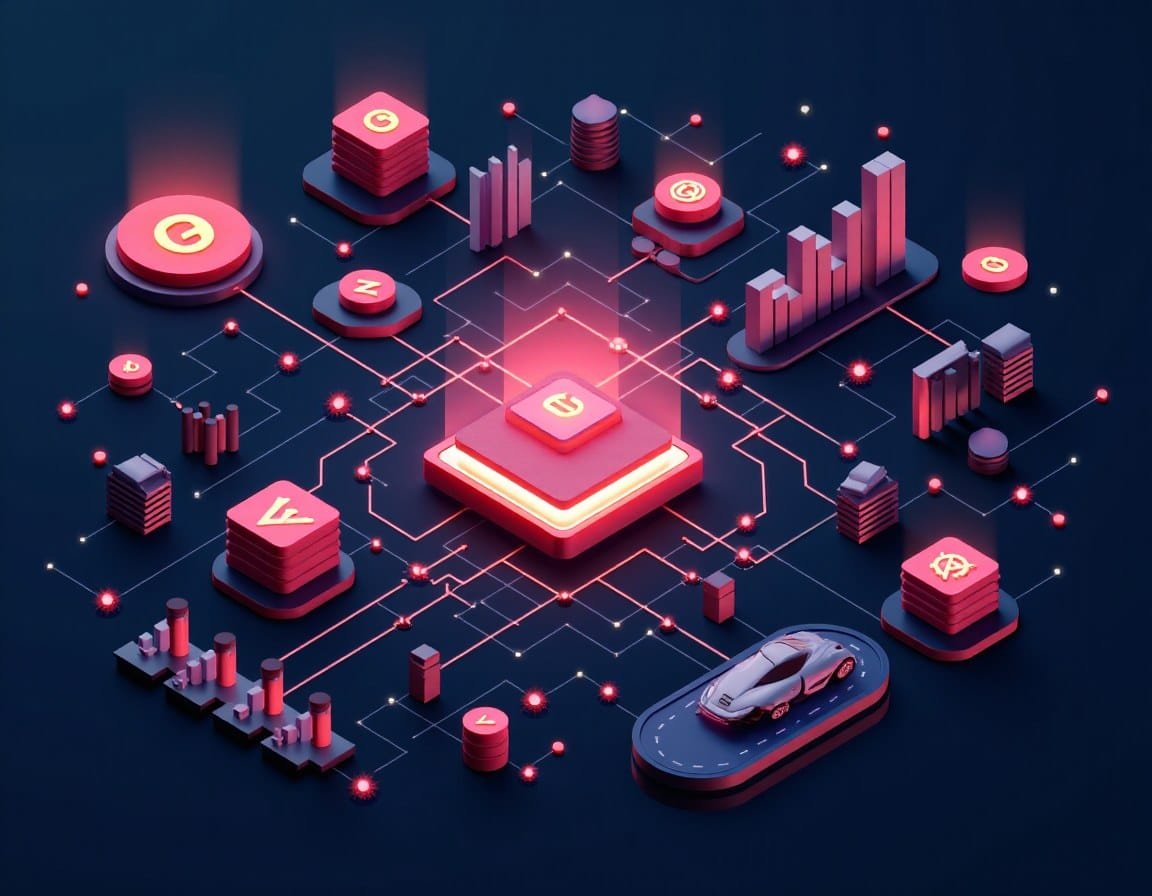“`html
Unlocking the Secrets of Blockchain: Can This Revolutionary Technology Replace Traditional Banks and Change the Face of Personal Finance Forever? As a beginner looking to dive into the world of cryptocurrency fundamentals, you’re likely wondering what all the fuss is about. In this comprehensive guide, “Blockchain for Beginners”, we’ll break down the basics of blockchain technology and its impact on personal finance, helping you navigate the complex landscape of cryptocurrencies and understand how they’re changing the game. From understanding the underlying principles to exploring real-world applications, our goal is to provide a clear and approachable introduction to this rapidly evolving field, empowering you with the knowledge needed to make informed decisions about your financial future in an increasingly digital age where blockchain technology is poised to revolutionize traditional banking systems and personal finance practices.
What is “Blockchain for Beginners”?
Blockchain for Beginners refers to an introductory understanding of blockchain technology, which is a decentralized digital ledger that records transactions across multiple computers. This ensures that the recorded transactions cannot be altered retroactively, providing a secure and transparent method for managing digital assets.
Understanding Blockchain Basics
At its core, blockchain is a type of distributed ledger technology (DLT) that allows data to be stored globally on thousands of servers. This makes it nearly impossible for one entity to gain control over the network. Each block in the blockchain contains a number of transactions, and every time a new transaction occurs on the blockchain, a record of that transaction is added to every participant’s ledger.

How Does Blockchain Work?
Blockchain technology works through a series of steps that ensure the security and integrity of data:
- Transaction Initiation: A user requests a transaction, which is then broadcasted to a network of computers known as nodes.
- Validation: The network of nodes validates the transaction using known algorithms.
- Block Creation: Once verified, the transaction is combined with other transactions to create a new block of data for the ledger.
- Chain Addition: The new block is added to the existing blockchain, making it permanent and unalterable.
- Completion: The transaction is complete, and the updated blockchain is distributed across the network.
Why is Blockchain Important for Cryptocurrency Investments?
Blockchain technology is crucial for cryptocurrency investments because it provides a secure and transparent way to record transactions. This reduces the risk of fraud and ensures that all transactions are verifiable and traceable. Additionally, blockchain allows for the creation of smart contracts, which are self-executing contracts with the terms of the agreement directly written into code.
Real-World Applications of Blockchain
Beyond cryptocurrencies, blockchain technology has numerous applications across various industries:
- Supply Chain Management: Blockchain can enhance transparency and traceability in supply chains, reducing fraud and errors.
- Healthcare: It can securely store patient records, ensuring privacy and accessibility.
- Finance: Blockchain can streamline banking processes, reduce costs, and increase transaction speeds.
- Voting Systems: It can provide a secure and transparent method for conducting elections.
Comparing Blockchain with Traditional Banking
To understand the potential of blockchain, it’s essential to compare it with traditional banking systems:
| Feature | Blockchain | Traditional Banking |
|---|---|---|
| Transparency | High | Low |
| Security | Decentralized and secure | Centralized and vulnerable |
| Transaction Speed | Fast | Slow |
| Cost | Low | High |
Challenges and Limitations of Blockchain
Despite its advantages, blockchain technology faces several challenges:
- Scalability: As the number of users increases, the network can become congested, leading to slower transaction times.
- Energy Consumption: The process of validating transactions requires significant computational power, leading to high energy usage.
- Regulatory Issues: The decentralized nature of blockchain poses challenges for regulatory bodies trying to enforce laws and regulations.
Future of Blockchain in Personal Finance
The future of blockchain in personal finance looks promising as more industries adopt this technology. It has the potential to revolutionize how we manage and invest our money, offering greater security, transparency, and efficiency. As blockchain technology continues to evolve, it will likely play a significant role in shaping the future of personal finance.
Conclusion
In conclusion, blockchain technology offers a revolutionary approach to managing digital assets and conducting transactions. As a beginner, understanding the basics of blockchain can empower you to make informed decisions about your financial future. Whether you’re interested in investing in cryptocurrencies or exploring other applications of blockchain, this technology is set to transform the landscape of personal finance.
Additional Resources
For more insights and updates on blockchain and cryptocurrency, follow and subscribe to our resources:
“`

